There are multiple ways that the School of Pharmacy and UW–Madison support our students’ training and wellbeing, some of which are highlighted below. We also encourage you to explore the Madison Life and Housing and Transportation areas to learn more about our community and living in Madison.
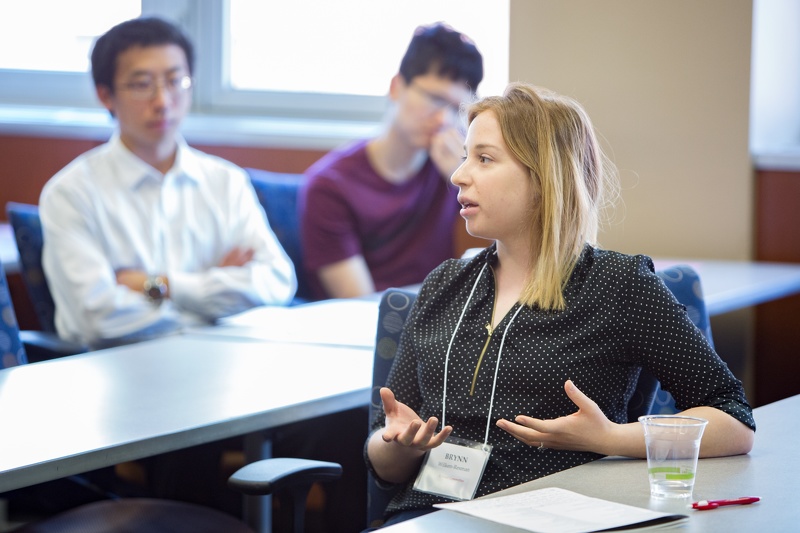 Pharmaceutical Sciences PhD students have a voice in shaping their program, campus, and community through several mechanisms.
Pharmaceutical Sciences PhD students have a voice in shaping their program, campus, and community through several mechanisms.
Our students serve on several committees in the School of Pharmacy. We have student representatives on the following committees: Admissions, Safety, Assessment, Graduate Studies, Student Climate and Inclusivity, and Student Wellbeing.
Student organizations and other groups on campus provide our students with opportunities for social connections, professional development, and outreach activities. A few examples of such groups and organizations are provided below. A more complete list of student groups and events at UW Madison can be found at https://win.wisc.edu. Information about additional professional development events can be found at https://grad.wisc.edu/professional-development/.
UW-Madison Chapter: American Association of Pharmaceutical Scientists (AAPS)
The Pharmaceutical Sciences Division houses an active chapter of AAPS that organizes both social and professional development events. Visit AAPS’s website
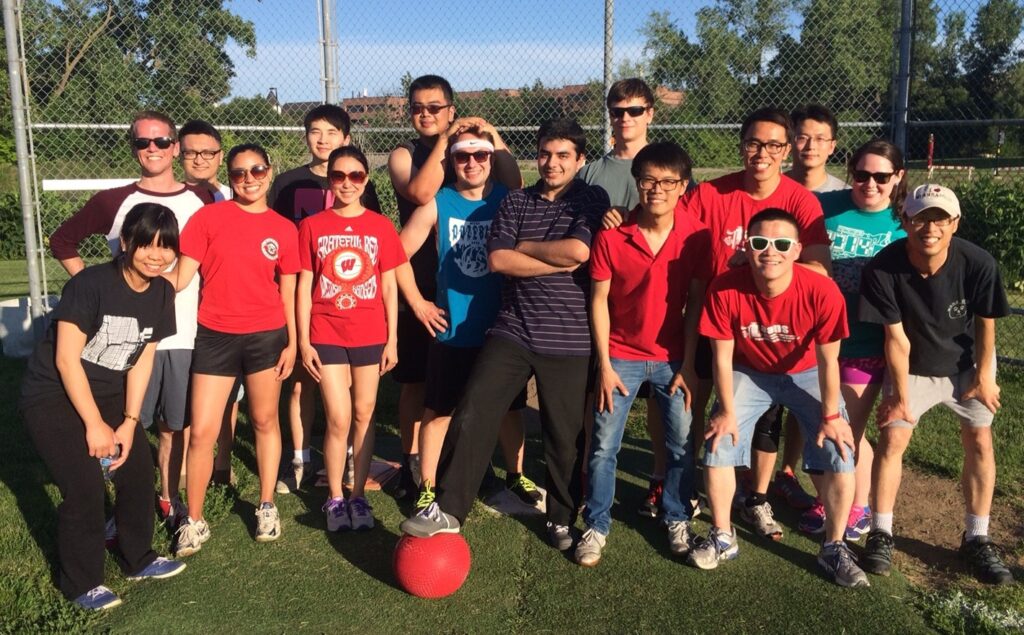
Graduate Women in Science
Learn about the Beta Chapter of Sigma Delta Epsilon – Graduate Women in Science at UW-Madison: https://win.wisc.edu/organization/gwis
Active UW–Madison Postdoctoral Association
The Postdoctoral Association’s programming/events are often open to grad students: https://uwpa.wisc.edu
SACNAS (Society for Advancement of Chicanos and Native Americans in Science)
Visit the UW–Madison chapter’s website: https://win.wisc.edu/organization/sacnas
Catalysts for Science Policy (CaSP)
CaSP provides leadership, career development, and outreach opportunities for graduate students and post-doctoral fellows interested in public policy.
The McBurney Disability Resource Center serves students with physical, learning, sensory or psychological disabilities.
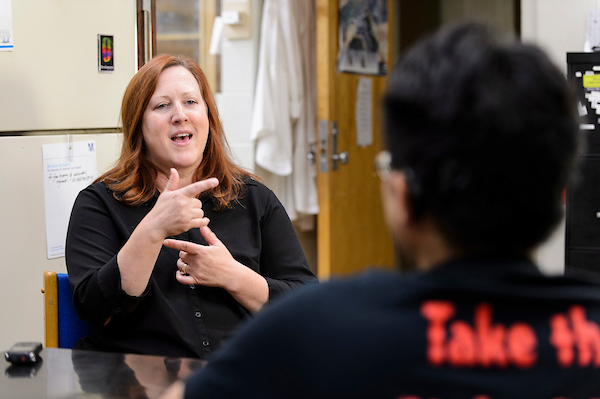
The Graduate School has multiple entities that promote diversity, inclusion, and student success. Some examples include The Office of Diversity, Inclusion, and Funding (ODIF), The Science and Medicine Graduate Research Scholars (SciMed GRS) Program, and the Edward Alexander Bouchet Graduate Honor Society.
There are several campus centers and services that provide support to people on campus and offer opportunities to connect, share experiences, and engage with the greater Madison community. Examples include the Gender and Sexuality Campus Center, the Multicultural Student Center which is home to several identity centers, University Veterans Services, International Student Services, and the Office of Child Care and Family Resources.
The Dean of Student’s Office is also available to assist and support students.
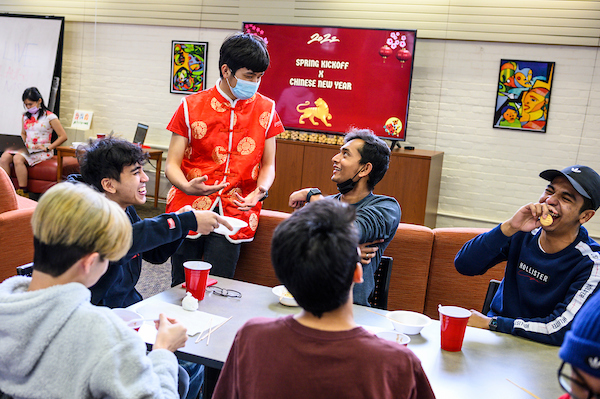
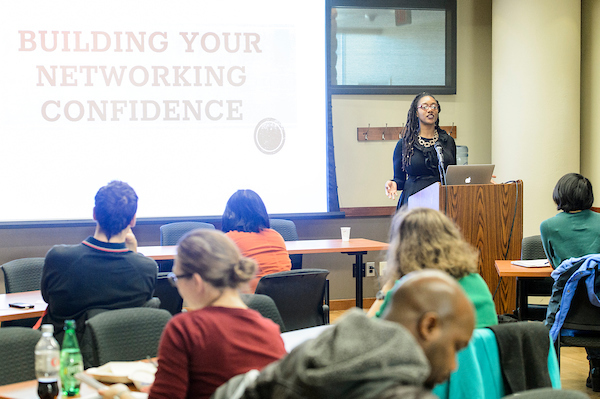 There are many excellent professional development resources available to all graduate students at UW–Madison. Additional professional development activities and events are also held within the Pharmaceutical Sciences PhD program. For example, the program often engages our alumni for career discussions with our students at our biennial student retreat and other events through the year, and our students have opportunities to network at local biotech or pharmaceutical companies. Other pharmaceutical and biotech companies visit campus to hold information sessions and interview students on-site. Some students choose to pursue internships at local, national, and international companies to further their career preparation. Pharmaceutical Sciences students have participated in the inaugural year of the Graduate School Industry Internship Program.
There are many excellent professional development resources available to all graduate students at UW–Madison. Additional professional development activities and events are also held within the Pharmaceutical Sciences PhD program. For example, the program often engages our alumni for career discussions with our students at our biennial student retreat and other events through the year, and our students have opportunities to network at local biotech or pharmaceutical companies. Other pharmaceutical and biotech companies visit campus to hold information sessions and interview students on-site. Some students choose to pursue internships at local, national, and international companies to further their career preparation. Pharmaceutical Sciences students have participated in the inaugural year of the Graduate School Industry Internship Program.
Participation in student groups can provide leadership and career development opportunities, see the Student Involvement section for some examples. Examples of professional development opportunities are further described below.
The Forward Fellows program is a funded, transition program designed to broaden participation in science and engineering.
The Graduate School’s Office of Professional Development offers free resources for the university’s graduate students including:
- DiscoverPD – a database system that provides students with customized recommendations for development activities on campus and beyond
- Individual Development Plan – helps students assess their skills, interests and strengths; create a written plan for developing skills; and share the plan with their mentor(s)
- Free memberships, tools, and live workshops to help graduate students build their skills, explore career options, and more
The Delta Program promotes the development of a future national faculty in the natural and social sciences, engineering, and mathematics that is committed to implementing and advancing effective teaching practices and mentoring activities.
The UW-Madison Postdoctoral Association’s programming/events are often open to grad students.
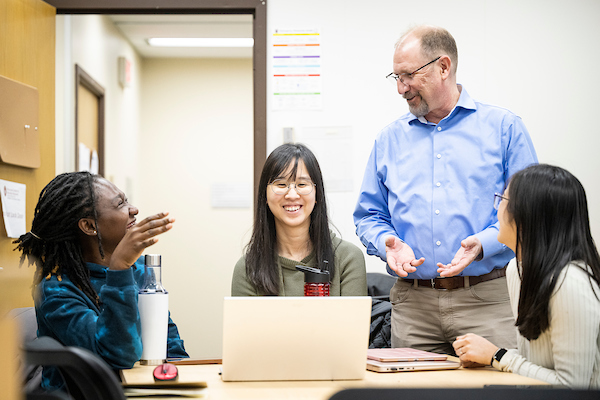
As part of the Pharmaceutical Sciences Seminar series, graduate students can network with invited speakers over lunch to engage in career and scientific discussions. The Principles in Pharmaceutical Sciences (718-780) course taken by all 1st year students also provides connections with industry leaders through guest presentations and lunch roundtables.
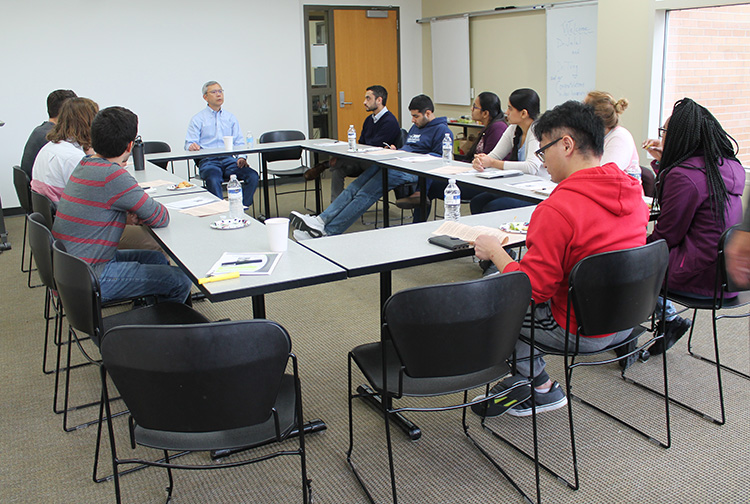
WARF Ambassadors enhance the important connection between research on campus and technology transfer at WARF. Both graduate students and post-doctoral fellows in Pharmaceutical Sciences are active in the WARF Ambassador program.
The Morgridge Entrepreneurial Bootcamp (MEB) is a one-week intensive training program in technology entrepreneurship for graduate students in the sciences, engineering, and math. MEB students work with case analyses, lectures, expert panels, and exercises in market assessments, and participate in lively social events.
 PhD students in Pharmaceutical Sciences are eligible for benefits, including comprehensive health insurance. Please see our Financial Information page for more details. Students also have access to University Health Services (UHS).
PhD students in Pharmaceutical Sciences are eligible for benefits, including comprehensive health insurance. Please see our Financial Information page for more details. Students also have access to University Health Services (UHS).
One of the services available at UHS are mental health services, including 24-7 crisis services, individual counseling, spouse/partner counseling, and group counseling, where students can connect with peers with similar lived experiences. UHS also offers Let’s Talk, which are no-cost, informal, confidential consultations that occur in person and virtually. Remote health experiences are also available for both mental and physical wellbeing. School of Pharmacy students, including graduate students, have access to free psychotherapy services through the Psychology Research & Training Clinic (PRTC).
Additional campus resources available to support graduate students include the Dean of Student’s Office and the Graduate School. Please see our Student Involvement section to read more about groups and activities that provide social and other opportunities for students.
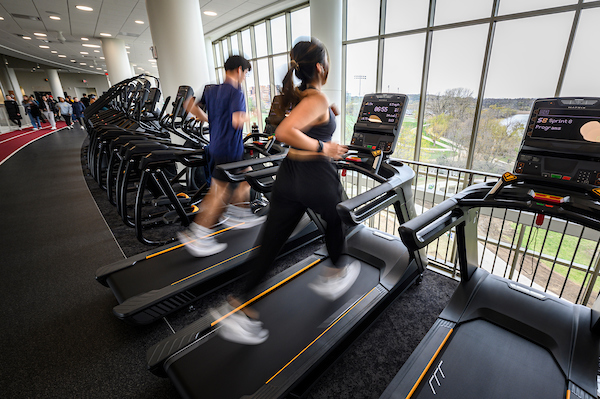 Graduate students have access to campus recreational facilities including the new state-of-the-art Bakke Recreation and Wellbeing Center, which is located just a short walk, bike ride, or campus bus ride from Rennebohm Hall. The Bakke has many opportunities for recreation including a pool, multipurpose courts and studios, an ice center, a climbing/bouldering wall, an indoor jogging track, sports simulators, and more than 29,000 square feet of fitness space. The Bakke also houses the Wolf Teaching kitchen, restorative studios, and rooms for massage therapy, peer wellness coaching, and meditation.
Graduate students have access to campus recreational facilities including the new state-of-the-art Bakke Recreation and Wellbeing Center, which is located just a short walk, bike ride, or campus bus ride from Rennebohm Hall. The Bakke has many opportunities for recreation including a pool, multipurpose courts and studios, an ice center, a climbing/bouldering wall, an indoor jogging track, sports simulators, and more than 29,000 square feet of fitness space. The Bakke also houses the Wolf Teaching kitchen, restorative studios, and rooms for massage therapy, peer wellness coaching, and meditation.
Rennebohm Hall is in close proximity to Lake Mendota and students can easily take advantage of walking, running, and biking along the Lakeshore Path and exploring the nearby Lakeshore Nature Preserve, among many other outdoor recreation activities available on campus and in Madison.
Questions about our program?
Check our FAQ page for detailed answers to common questions
